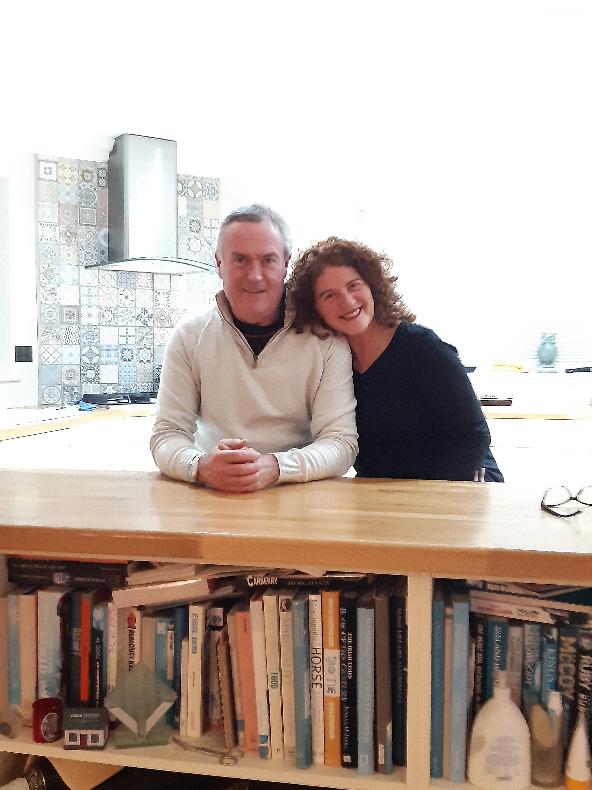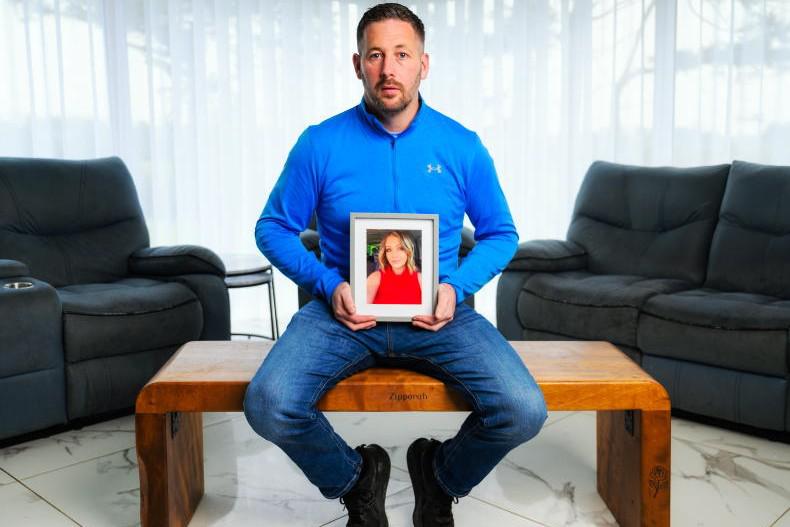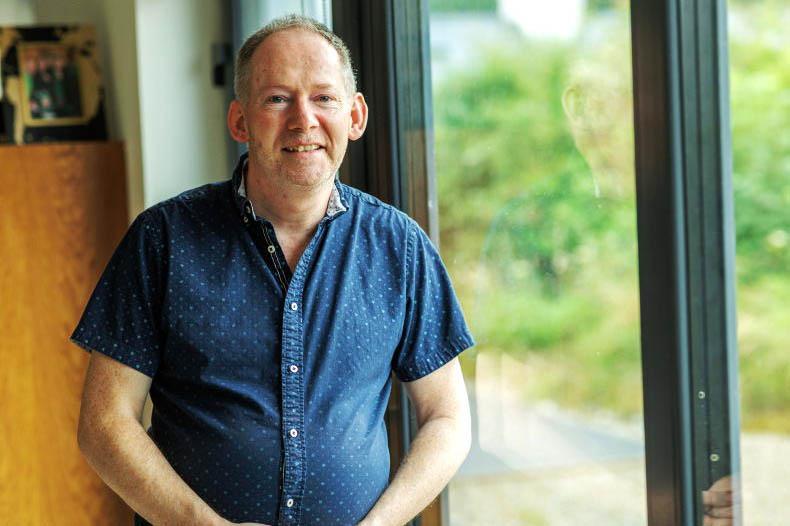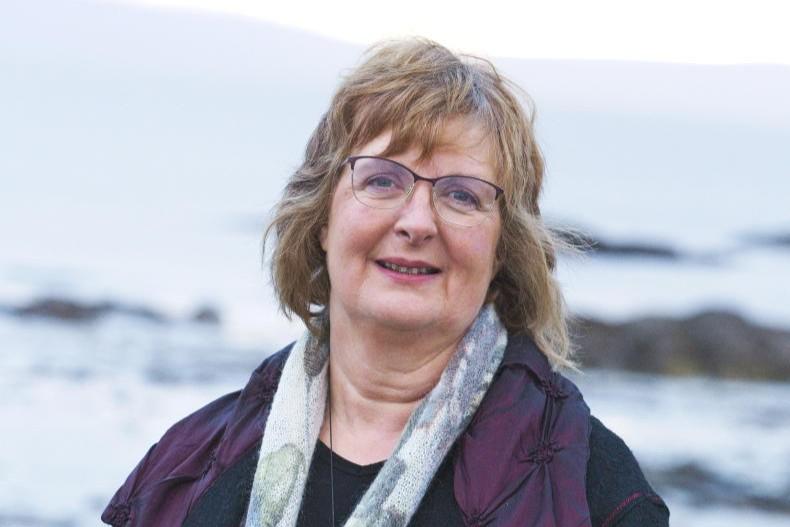Of the 6,000 or so children currently in care in Ireland, 93% are in a foster care setting.
And according to the CEO of the Irish Foster Care Association (IFCA) Catherine Bond (pictured below), such a commitment to providing children with a safe and secure home environment is uniquely Irish.
“I think it’s because we have such a value on the family and children growing up in the family environment,” she says.
Fostering means taking care of someone else’s child in your own home when they cannot live with their own family, either on a short or longer-term basis. This could be for many reasons; illness or the death of a parent, neglect, abuse or violence in the home, or because a parent is struggling to cope. Children up to the age of 18 can be fostered, and the goal, where possible, is to return to their own family.
Motivated to ‘give back’
Where IFCA comes in, however, is as a vital lifeline for foster families and the wider fostering community.
Established in 1981, it currently has 2,600 members and offers a variety of practical supports including a national helpline, 15 branches and six foster care hubs to deliver peer support as well as training and social opportunities. It also has an annual national conference and an advocacy service to support foster families who might find themselves dealing with complex issues during their placements.
“But I think what’s most important is it’s being part of that community,” says Catherine. “It’s really about bringing people together to share their experiences, to share their learning and their knowledge with each other.”
Asked why people apply to foster, Catherine believes that many members are motivated to “give back”.
“Their own children might be doing their Leaving Cert or going on to college and they really feel they still have a lot to give to life, to society and that would be one of the drivers. And we have single people who think, ‘I have space in my life, I might have something to give here,’” she says.
While practical considerations such as having space in the home for a child are important when considering fostering, from Catherine’s perspective, “availability” is just as vital; in every sense.
“Are you available in terms of emotional availability?” she asks. “And you need to be available to bring children to their appointments, to contact with their own birth family – which would most normally be the case for most children in foster care – and appointments with social workers.
“So you need to really, really be available to the child and available to meet their needs.”
Of course, there can be obstacles along the way. Some children will have experienced trauma that may manifest in anxieties or challenging behaviours, foster parents might have to fight for essential services such as speech and language therapy or psychological support, and there can be issues in getting social supports from the family’s perspective. Fears of having an allegation made against foster carers can also be a worry.
“There’s always the risk of an allegation being made against you – whether that’s founded or unfounded – but once that allegation is made, that foster carer has to go through the process of investigations and that can be really, really stressful for foster care families,” says Catherine.
However, surveys conducted by IFCA show that foster families report many more positives than negatives.
“Most foster carers would say that fostering benefits them and their families, that they get so much from it,” Catherine concludes, “but they also say that they know that they’re doing the very best for a child and giving a child good life chances, and they’re contributing to that child’s wellbeing and their potential.”
For further information, visit www.ifca.ie or call the helpline on 01-4585 123. Membership of IFCA is free for the first year and at a nominal rate thereafter.
According to Citizens Information, in March 2020, there were more than 4,000 foster carers on the panel of approved foster carers in Ireland. Any person or family can apply; whether they are single, married, in a same-sex relationship, employed or unemployed, renting or retired, and regardless of ethnic, cultural or religious background.
In Ireland, Tusla is responsible for assessing, recruiting and training foster families, as well as placing children with foster families who have been recruited and trained by non-statutory private agencies. Tusla also pays a basic weekly maintenance allowance (€325 per child under 12/€352 per child over 12), as well as providing other supports, such as ongoing liaison with social workers.
For further information, visit tusla.ie

Raymond Nolan and his wife Theresa live in Mountcharles, Co Donegal and have fostered 12 children since 2014. Raymond also sits on the board of IFCA.
Of the many memories made since becoming a foster parent, one that stands out for Raymond Nolan is when he taught a 10-year-old boy to ride a bike for the first time.
“The smile on his face and the thank you will stay with you for the rest of your days,” he says.
But Raymond admits that he was not always convinced that fostering was for him. It was his wife Theresa who first suggested it back in 2012, after talking to a childhood friend who was already providing care.
“We don’t have any birth family and that was something that Theresa wanted, children in the house,” says Raymond. “I thought nothing would come of it, so I didn’t object to it… (but) the thought of having somebody else’s children in your home and the responsibility probably frightened the life out of me.”
Today, however, he “wouldn’t have it any other way”; despite some of the challenges that he and Teresa have encountered in the process.
The couple applied to become foster parents through a private agency, Fostering First Ireland, and while they found them to be very supportive, Raymond says the application process was daunting initially.
“You have so many people coming to your home and all that takes getting used to and the process of assessment and so on,” he says.
“You don’t really know what to expect. With experience it gets a lot easier, but it was a very anxious time, waiting and wondering.”
The couple received their first foster placement in 2014 – a 14-year-old boy – but while they formed a close bond, Raymond says they did find it difficult to access appropriate support from the State for his needs. Saying goodbye when the placement ended was also challenging.
“It was like a death in the family really. That’s what I would compare it to,” says Raymond; though they still maintain contact to this day.
Since then, the couple have fostered 12 children in total, ranging from providing weekend respite to longer-term stays of two years, as well as caring for three siblings. Raymond says it’s amazing to see how “a bit of love and kindness go a long way”.
“We find that giving the child a normal family environment, you really will see them blossom,” he says, explaining that simple things that many people might take for granted – like routine, a safe space and home cooking – mean so much.
“And when you see the progress in the kids and the steps they’ve taken, it’s massive,” he continues.
Of course, there are challenges. Advocating for supports and services for the children can be exhausting, and Raymond explains that the amount of people involved “can be overwhelming at times”.
“You could have up to 15 or 20 people involved in a child’s life,” he says.
There are also many sacrifices that have to be made so that the children always come first.
“We had no family, so we could come and go as we wanted, and all that turned on its head overnight,” says Raymond, who is self-employed, while Theresa works as a nurse. “You wouldn’t swap it; but you do sacrifice a lot in your life.”
He credits IFCA as a “fantastic” support to foster families.
“They do phenomenal work and without them, I think foster families would be lost,” says Raymond, who would advise any person who is considering fostering to contact the association.
He certainly has no regrets; whether he’s recalling the joy on one teenager’s face when she had her first birthday cake ever in their home, or the card he received from one young boy addressed “to the best father figure I will ever have”.
“Those things make it all worthwhile,” he concludes.
Read more
Top tips to help alleviate anxiety in children
Supporting your grieving child
Of the 6,000 or so children currently in care in Ireland, 93% are in a foster care setting.
And according to the CEO of the Irish Foster Care Association (IFCA) Catherine Bond (pictured below), such a commitment to providing children with a safe and secure home environment is uniquely Irish.
“I think it’s because we have such a value on the family and children growing up in the family environment,” she says.
Fostering means taking care of someone else’s child in your own home when they cannot live with their own family, either on a short or longer-term basis. This could be for many reasons; illness or the death of a parent, neglect, abuse or violence in the home, or because a parent is struggling to cope. Children up to the age of 18 can be fostered, and the goal, where possible, is to return to their own family.
Motivated to ‘give back’
Where IFCA comes in, however, is as a vital lifeline for foster families and the wider fostering community.
Established in 1981, it currently has 2,600 members and offers a variety of practical supports including a national helpline, 15 branches and six foster care hubs to deliver peer support as well as training and social opportunities. It also has an annual national conference and an advocacy service to support foster families who might find themselves dealing with complex issues during their placements.
“But I think what’s most important is it’s being part of that community,” says Catherine. “It’s really about bringing people together to share their experiences, to share their learning and their knowledge with each other.”
Asked why people apply to foster, Catherine believes that many members are motivated to “give back”.
“Their own children might be doing their Leaving Cert or going on to college and they really feel they still have a lot to give to life, to society and that would be one of the drivers. And we have single people who think, ‘I have space in my life, I might have something to give here,’” she says.
While practical considerations such as having space in the home for a child are important when considering fostering, from Catherine’s perspective, “availability” is just as vital; in every sense.
“Are you available in terms of emotional availability?” she asks. “And you need to be available to bring children to their appointments, to contact with their own birth family – which would most normally be the case for most children in foster care – and appointments with social workers.
“So you need to really, really be available to the child and available to meet their needs.”
Of course, there can be obstacles along the way. Some children will have experienced trauma that may manifest in anxieties or challenging behaviours, foster parents might have to fight for essential services such as speech and language therapy or psychological support, and there can be issues in getting social supports from the family’s perspective. Fears of having an allegation made against foster carers can also be a worry.
“There’s always the risk of an allegation being made against you – whether that’s founded or unfounded – but once that allegation is made, that foster carer has to go through the process of investigations and that can be really, really stressful for foster care families,” says Catherine.
However, surveys conducted by IFCA show that foster families report many more positives than negatives.
“Most foster carers would say that fostering benefits them and their families, that they get so much from it,” Catherine concludes, “but they also say that they know that they’re doing the very best for a child and giving a child good life chances, and they’re contributing to that child’s wellbeing and their potential.”
For further information, visit www.ifca.ie or call the helpline on 01-4585 123. Membership of IFCA is free for the first year and at a nominal rate thereafter.
According to Citizens Information, in March 2020, there were more than 4,000 foster carers on the panel of approved foster carers in Ireland. Any person or family can apply; whether they are single, married, in a same-sex relationship, employed or unemployed, renting or retired, and regardless of ethnic, cultural or religious background.
In Ireland, Tusla is responsible for assessing, recruiting and training foster families, as well as placing children with foster families who have been recruited and trained by non-statutory private agencies. Tusla also pays a basic weekly maintenance allowance (€325 per child under 12/€352 per child over 12), as well as providing other supports, such as ongoing liaison with social workers.
For further information, visit tusla.ie

Raymond Nolan and his wife Theresa live in Mountcharles, Co Donegal and have fostered 12 children since 2014. Raymond also sits on the board of IFCA.
Of the many memories made since becoming a foster parent, one that stands out for Raymond Nolan is when he taught a 10-year-old boy to ride a bike for the first time.
“The smile on his face and the thank you will stay with you for the rest of your days,” he says.
But Raymond admits that he was not always convinced that fostering was for him. It was his wife Theresa who first suggested it back in 2012, after talking to a childhood friend who was already providing care.
“We don’t have any birth family and that was something that Theresa wanted, children in the house,” says Raymond. “I thought nothing would come of it, so I didn’t object to it… (but) the thought of having somebody else’s children in your home and the responsibility probably frightened the life out of me.”
Today, however, he “wouldn’t have it any other way”; despite some of the challenges that he and Teresa have encountered in the process.
The couple applied to become foster parents through a private agency, Fostering First Ireland, and while they found them to be very supportive, Raymond says the application process was daunting initially.
“You have so many people coming to your home and all that takes getting used to and the process of assessment and so on,” he says.
“You don’t really know what to expect. With experience it gets a lot easier, but it was a very anxious time, waiting and wondering.”
The couple received their first foster placement in 2014 – a 14-year-old boy – but while they formed a close bond, Raymond says they did find it difficult to access appropriate support from the State for his needs. Saying goodbye when the placement ended was also challenging.
“It was like a death in the family really. That’s what I would compare it to,” says Raymond; though they still maintain contact to this day.
Since then, the couple have fostered 12 children in total, ranging from providing weekend respite to longer-term stays of two years, as well as caring for three siblings. Raymond says it’s amazing to see how “a bit of love and kindness go a long way”.
“We find that giving the child a normal family environment, you really will see them blossom,” he says, explaining that simple things that many people might take for granted – like routine, a safe space and home cooking – mean so much.
“And when you see the progress in the kids and the steps they’ve taken, it’s massive,” he continues.
Of course, there are challenges. Advocating for supports and services for the children can be exhausting, and Raymond explains that the amount of people involved “can be overwhelming at times”.
“You could have up to 15 or 20 people involved in a child’s life,” he says.
There are also many sacrifices that have to be made so that the children always come first.
“We had no family, so we could come and go as we wanted, and all that turned on its head overnight,” says Raymond, who is self-employed, while Theresa works as a nurse. “You wouldn’t swap it; but you do sacrifice a lot in your life.”
He credits IFCA as a “fantastic” support to foster families.
“They do phenomenal work and without them, I think foster families would be lost,” says Raymond, who would advise any person who is considering fostering to contact the association.
He certainly has no regrets; whether he’s recalling the joy on one teenager’s face when she had her first birthday cake ever in their home, or the card he received from one young boy addressed “to the best father figure I will ever have”.
“Those things make it all worthwhile,” he concludes.
Read more
Top tips to help alleviate anxiety in children
Supporting your grieving child










SHARING OPTIONS